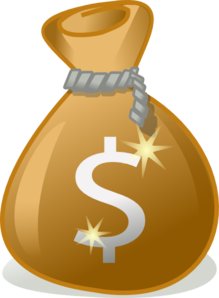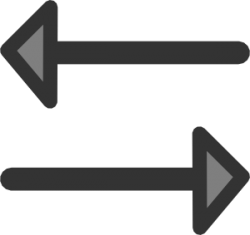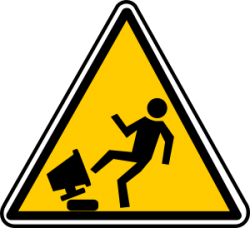Trading Educators Blog
It is critical to develop a well thought out and organized trading plan. It is then important to have the discipline needed to follow it. Diversify your trading into several unrelated markets, or focus on one market and time frame where you have seen you can make money. Trading, by its nature is not investing. Trading requires consistent monitoring on at least a daily basis because of the large im...
Under what conditions would you like to trade if you had your choice? You would probably want to trade in a strong bull market, be way ahead so that a loss wouldn't hurt at all, and have a foolproof trading plan. In addition, you would want to have a mental edge. You should be in a good mood, alert, and ready to take action. We can't always trade under such ideal conditions, however. If you are a ...
Winning traders are disciplined. Discipline means controlling impulses and fighting the urge to abandon your trading plan prematurely. Maintaining discipline is often easier said than done, especially when the market is moving in your favor. It's hard to avoid closing a trade out early in order to lock in profits. Some winning traders face more losers than winners, and when you hit upon a winner, ...
Imagine what you would do in the following scenario. You have been looking at a position for a week. You had a clear and simple trading plan: Just wait for an announcement at the end of the week, watch prices jump, and then sell. As might be expected, things aren't working as you had planned. First, no clear trend has emerged; prices are moving chaotically up and down. Second, it's been two days s...
"Sometimes I absolutely dread sitting down to trade. I have had so many bad experiences that I'm not sure I can pull the trigger. Anything I can do about it?" What happens to us as we trade colors the way we see things in the market and influences the way we approach them. We take a big hit in a particular market and we decide never to trade there again. Or, when we have a great ...
You must be disciplined in following the plan of your trade religiously. Once you have closed your position, you should record everything about the trade. Write down where you wanted to enter the trade, what you expected out of the trade, and what you actually did get out of the trade. Make sure to include notes that will help you learn from the trade, reasoning what actually took place once you e...
Think of patience as a primary part of your trading strategy. Don't assign it a secondary or lesser role, elevate it on the list of what you consider important. And don't be put off by it when it doesn't seem to be working — it's working. Don't start feeling self-righteous about not trading, as if now it owes you (because you have been so disciplined and patient). This is a trap. Don't start to fe...
Recently I heard another tale of woe involving the failure to admit being wrong. This man followed a familiar path. As a day trader in the E-mini S&P 500, he first contacted me to tell me that he was unhappy with the data he was receiving. He wanted to know if I could recommend a good trading program for him. I mentioned a couple of them to him and he decided on one. Another interval of time w...
Overtrading is putting on trades unnecessarily, arbitrarily, and without a specific trading plan. Overtrading can also be trading with more risk than you can afford, and trading more contracts than you can effectively manage physically, mentally, and emotionally. Mistake #1: Assuming a real trader trades all day. Mistake #2: Trading for excitement. Mistake #3: Trading because you are frustrated. M...
Money management involves a number of things and it is not to be confused with trade management. Money management is static. It deals with things like deciding the size of your margin account; deciding how much of your account you will put at risk on any one trade; deciding where to place your stop; and deciding on fixed objectives. The main purpose of money management is to save you from a disast...
Careful analysis of all possible alternatives and all possible consequences of your trading decisions is the first step in good decision-making. Make every attempt to avoid impulsive trading decisions, invariably these lead to taking unnecessary risks. Strive to have a clearly defined trading plan, but keep it as simple as possible. Chart the equity of your trading method so that you can quickly k...
Trading can be difficult. It often requires you to look for trading opportunities during off hours. You can be making the mistake of thinking you have to take trade after trade during the trading day. When you think you have to trade all the time, trading can become a real labor, something difficult to keep at doing. Even the most exciting, rewarding activity can become commonplace if you drive yo...
Conclusion It is critical to develop a well thought out and organized trading plan. It is then important to have the discipline needed to follow it. Diversify your trading into several unrelated markets, or focus on one market and time frame where you have seen you can make money. Trading, by its nature is not investing. Trading requires consistent monitoring on at least a daily basis because of t...
How to Get Started: I've seen many different trading plans. Whether they're two paragraphs or ten pages long, they put forth a way of looking at the market and they attempt to create some framework for approaching the markets. A good plan will include a well-tested strategy, a trading method, or a setup. Having a positive expectation should allow you to have the confidence to start t...
Discipline is the Key: You will need discipline in several areas to be successful. First you'll need the discipline to make a plan, rather than shoot from hip. Without discipline, many approach the markets like a craps table and they can expect the same results; short-term successes based on luck and long-term losses based on randomness. Second you'll need the discipline to follow the plan. ...
Develop a Trading Plan The main message, I want traders to understand is how important the disciplined execution of a well thought out trading plan is in today's markets. Nobody knows for sure what a given market will do next. Having a plan of attack will allow you to successfully cope with the uncertainty that is an inherent part of trading. I think it makes good common sense to have a well t...
Trading requires that you take decisive action. Implementing a successful trading plan quite often requires that you make quick decisions when the right market conditions come into play. The more complicated you make your trading, the harder it becomes to make quick decisions. We all know it can be hard to make trading decisions when your money is on the line. Most of us have a natural desire to a...
The main message I want traders to understand is how important the disciplined execution of a well thought out trading plan is in today's markets. Nobody knows for sure what a given market will do next. Having a plan of attack will allow you to successfully cope with the uncertainty that is an inherent part of trading. I think it makes good common sense to have a well thought out plan of attack fo...
Trading is nothing more than a long, random statistical run. An experienced trader knows that even if he is in a losing streak right now, as long as he sticks to his already approved trading plan, he will come out a winner in the long run. This is why becoming angry is pointless. In fact, it is worse than pointless, because heated emotions often lead to poor decisions in subsequent trades. In such...
Many wannabe traders have trouble following their trading plans when they are seemingly in conflict with their basic beliefs. While you may have intended to stay with a strategy having specific parameters for entering and exiting a trade, there are things that can cause you to abandon your plan when you are faced with the reality of a live market. Sometimes this happens because you question whethe...










